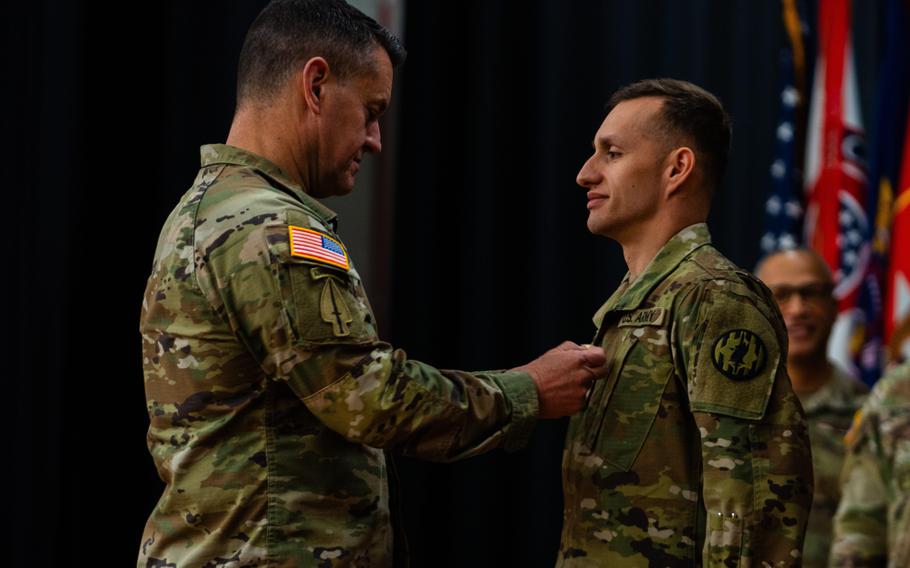
Sgt. Maj. of the Army Michael Weimer meets the service's newest recruiters during a ceremony Dec. 21, 2023, at Fort Knox, Ky. Weimer signed a memo this week explaining policy changes to professional military education, while announcing the end of temporary noncommissioned officer promotions. (U.S. Army)
The Army is changing its professional education requirements for noncommissioned officer ranks up through master sergeant, and it also will stop issuing temporary promotions for noncommissioned officers.
The purpose of the changes is to help reduce excessive pressure on soldiers and their commands to get them fully qualified for promotion, as well as to meet readiness requirements, the Army said.
“Soldiers previously promoted with a temporary promotion will not revert to their former grade and are considered promoted to their current grade without further conditions,” according to new guidance issued Thursday in an Army memo.
The temporary promotion provision has been in effect since January 2022. Its intent was to have most NCOs meet the professional military education requirement for promotion, Sgt. Maj. of the Army Michael Weimer said Thursday in a letter to the force posted on X, formerly known as Twitter.
“After two years, on average, half of the monthly promotions still require use of a temporary promotion,” Weimer said.
The new guidelines apply to the ranks of sergeant through master sergeant. They affect soldiers in the regular Army, National Guard and Army Reserve, according to the memo.
Under the guidance, the PME requirement is shifting one grade lower than the current promotion system. The Master Leader Course is no longer a requirement for promotion to master sergeant and soldiers no longer need a PME course to be promoted to sergeant.
To be promoted to staff sergeant, soldiers need to go through the Basic Leader Course. Promotion to sergeant first class requires graduation from the Advanced Leader Course, while attaining the rank of master sergeant will require completion of the Senior Leader Course.
“Attending resident PME remains important and integral to developing our NCO corps,” Weimer said.
To show that the Army is still emphasizing the need for PME, specialists and sergeants competing for promotion will be awarded an additional 150 promotion points for completing it ahead of schedule, Weimer said in the letter.
“The Army will apply this bridging strategy while it reevaluates the relationship between training and education to shape future policy that does not require an extensive use of exceptions and temporary promotions,” he added.